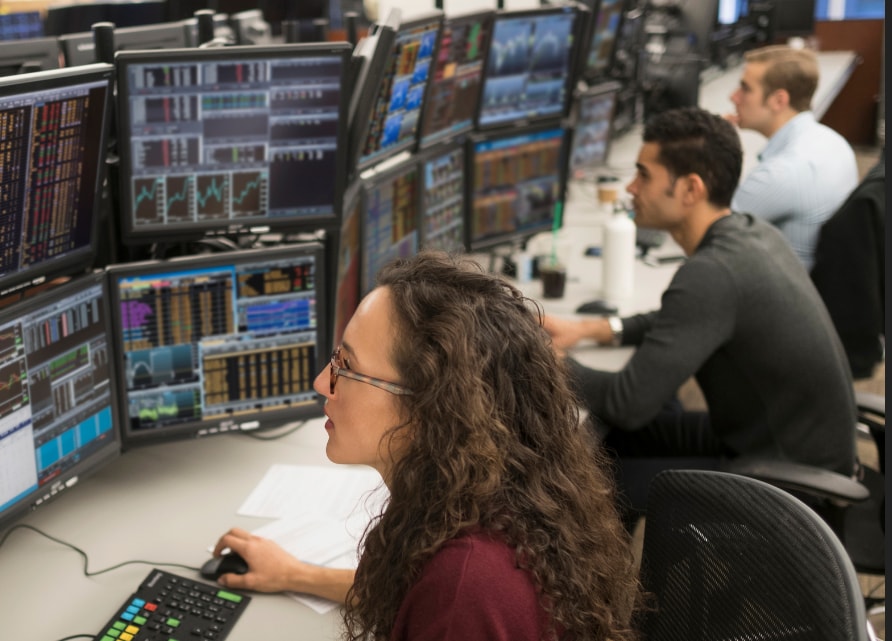US markets posted their first negative session this year last night, closing lower with the tech heavy Nasdaq acting as the main drag.
This doesn’t appear to have translated into Asia which has seen markets by and large trade in a mixed fashion, while here in Europe markets have opened modestly higher, as we pause a little after the decent start to the year seen last week. The FTSE 100 in particular is underperforming, slipping into the red in early trading, however it was also the best performer last week by some way.
The caution being exhibited this week seems entirely sensible, particularly so given the strong start to the year, and when set against the sharp rise in yields seen in the past few days, which has made long term US treasuries slightly more attractive.
In company news Marks and Spencer have acquired the Jaeger fashion brand which fell into administration last November. M&S has spent several years trying to revamp its general merchandising division with little success, and last week showed that sales in this particular area fell by 25.1% in Q3 with nightwear and leisurewear performing particularly well. Revenues were also lower, falling to £2.5bn, however M&S hasn’t been unique in this regard given the restrictions that have been in place for most of last year as well as Q3. It is hard to see how this particular acquisition will make that much difference to how Marks and Spencer are viewed by consumers particularly in womenswear where it has struggled the most, after all if Jaeger was such great brand it wouldn’t have gone into administration.
Continuing the retail theme B&Q owner Kingfisher latest Q4 numbers showed a modest slowdown from the 17.4% rise in group sales seen in Q3, coming in at 12.6%. The main areas of growth have been in e-commerce which has seen an explosive rise in growth of 155% over November and December. November sales were a little disappointing on a group scale due to weakness in France and Spain, however UK and Ireland outperformed, with Screwfix on track to reach £2bn of sales in this fiscal year.
Having heard from British Land yesterday, and the pressure on their cash flow as a result of the problems in the retail sector, Land Securities has followed up this morning by announcing a similarly challenging set of numbers. Of the amount of rent that was due on 25 December, only 65% of the £112m total had been paid within five working days, compared to 94% in 2019. Year to date £24m in rent concessions have been granted to Land Securities customers. On a more positive note, 80% of the net amounts due between 25 March and 24 December last year have now been paid, with regional retail and more urban areas lagging behind the most.
Housebuilder Vistry Group, formerly Bovis Homes, has continued the recent theme of strong performance in this particular sector following on from last week’s update from Barratt Developments. A strong second half performance is expected to see full year profit before tax come in at the higher end of expectations at £140m. The company also said it is the boards intention to pay a modest final dividend.
Games Workshop Groupshares have seen a sharp drop despite reporting first half numbers well above the same levels a year ago. Revenues rose to £186.8m, from £148.4m a year before, while profits before tax came in at £92m, up from £59.2m. The shares have certainly seen some decent gains since the middle of last summer and made a record close yesterday, so today’s declines could be simply a case of locking in profits.
The pound came under a little pressure yesterday, mainly against the US dollar, with renewed chatter of negative rates not really making too much of an impact. The remarks by MPC member Tenreyro weren’t anything new, though her comments that rates could fall as low as -0.75% did raise some eyebrows, along with a huge dollop of scepticism.
We already know from the example seen in Europe, and elsewhere of how little benefit negative rates can bring, as well as the potential for broader damage to the banking system, and while it can be argued that keeping that option open is probably a sensible policy option, those options still need to be seen as credible. Yesterday’s comments were anything but, and suggest that some on the MPC are trying a little too hard.
The US dollar has also seen a decent rebound in the past few days, helped in part by the same rise in yields referred to earlier, with the spread between the US 10-year yield and German 10-year yield moving to its widest level since last March. This move in yields if sustained is likely to make it increasingly expensive to short the greenback, which might suggest that this rebound has further to go.
Bitcoin prices have stabilised after yesterday’s sharp 20% plunge which came about after the FCA said that investors could expect to lose their entire investment in a worst-case scenario. This is true of most speculative assets, particular crypto and can happen just as easily in more established assets as shareholders in banks and retailers can attest over the past 15 years. The FCA is certainly sensible in explaining the risks to consumers, however their warnings appear unlikely to dim the allure of an asset that has still risen over 50% since breaking above $20,000 on the 16 December, and which investors can gain exposure to in fractional amounts, thus minimising their overall exposure.
US markets look set to rebound from their modest losses yesterday though social media stocks Twitter and Facebook took a bit of a caning yesterday, on their decision to permanently ban President Trump from their platforms. They could well continue to come under pressure, as their business models come under greater scrutiny in the coming weeks and months as questions about their ability to be arbiters of what is acceptable and what isn’t continues to be discussed at length, not only in the US, but also across the globe as both the French and German governments criticised the decision to ban the US President.
Walmart announced yesterday it was moving into the fintech space with the creation of a new fintech start-up in partnership with Ribbit Capital. Ribbit Capital is one of the firms that is behind the Robinhood app which is so popular with retail investors, and which, it has been argued, helped fuel the strong rally in US markets in recent months.






